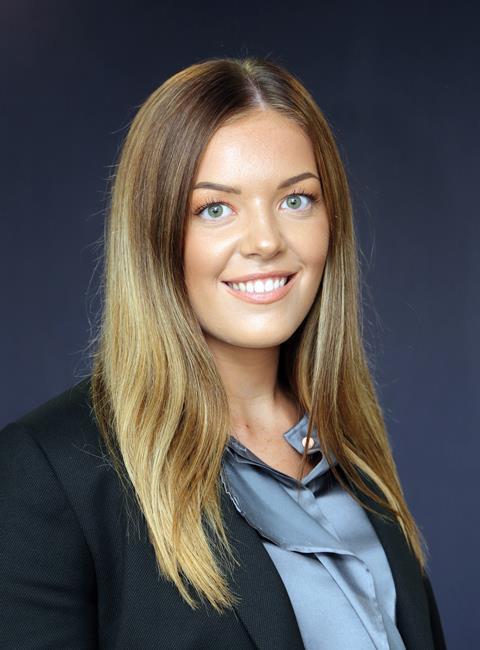Associate, Shrewsbury
My parents recall me reading newspapers from as young as 10 to keep up with the latest high-profile trials. Whenever someone asked me what I wanted to be when I grew up, my response would be ‘a police woman, judge or lawyer’.

I started studying law at the first possible opportunity, during A-levels at sixth form. My school’s catchment area is among the 30% most deprived populations in England. Most of my peers did not consider law as an option that was available to them. Given this, my A-level law class consisted of only two other students.
I read law at Keele University. I obtained a 2:1 and graduated in 2017. I then undertook the LLM in Legal Practice (LPC LLM), a postgraduate master’s degree combined with the Legal Practice Course.
I studied the LPC LLM on a full-time basis, which consisted of three full days of lectures each week. I knew that the next step would be to obtain a training contract, which my lecturers had described as being ‘like gold dust’. I was determined to put myself in the best possible position and got a part-time job as a legal secretary for the remaining two days each week to build up some practical work experience. I would study at the weekends, which meant that I had very little time to myself and it was quite full-on.
Nevertheless, my hard work paid off. I completed the LPC LLM in July 2018 with a distinction. In the meantime, I obtained a training contract at Lanyon Bowdler Solicitors, which started in September of that year. I qualified in March 2020 and in 2024 I was promoted to associate.
I was the first person in my family to go to university. My parents are both very hardworking but they did not have the same opportunities that are available now. I am lucky to have had a strong support network and a mum and dad who always told me that I could be anything I wanted to be.
'The nature of the work that I do inevitably takes an emotional toll. I am lucky to work with an incredibly close and supportive team and we have put measures in place to manage the risk of vicarious trauma'
I did not go to a Russell Group university and I did not know any other lawyers. Unfortunately, the adage ‘it’s not what you know, it’s who you know’ is often true in the legal industry and having the right connections can make all the difference. Nevertheless, this is changing and many colleagues are now pursuing CILEX and legal apprenticeships as an alternative route into law.
I found that gaining as much exposure as possible to the legal industry at an early stage was helpful in pursuing a legal career. I started applying for legal work experience during my first year at university. I completed a mini-pupillage at No.5 Chambers, obtained a position as a legal research assistant, acted as an appropriate adult at the police station and marshalled HHJ Steven Parker at Liverpool Civil Court Centre before graduating. This made me stand out to potential employers and also helped me make decisions about the area of law I wanted to practise and what type of firm I wanted to go to.
My first seat as a trainee was in clinical negligence. I had never experienced this area of law and had not appreciated how significant medical errors could be, and the ways in which the work of clinical negligence solicitors can truly make a difference to the lives of the victims and their families.
The first client meeting I attended involved visiting the home of a newborn baby whose mum had tragically lost her life during childbirth due to medical negligence. Although no amount of compensation was ever going to make up for what had happened, it would provide security for the future and ensure that the baby is given the best possible start in life. I knew that this was something that I wanted to be a part of.
The nature of the work that I do inevitably takes an emotional toll. I am lucky to work with an incredibly close and supportive team and we have put measures in place to manage the risk of vicarious trauma. For example, we have a ‘reflection lunch’ every other month, which is an opportunity to sit down together and discuss particularly challenging conversations. We attend regular wellbeing training days which encourage us to speak out and obtain support.































No comments yet